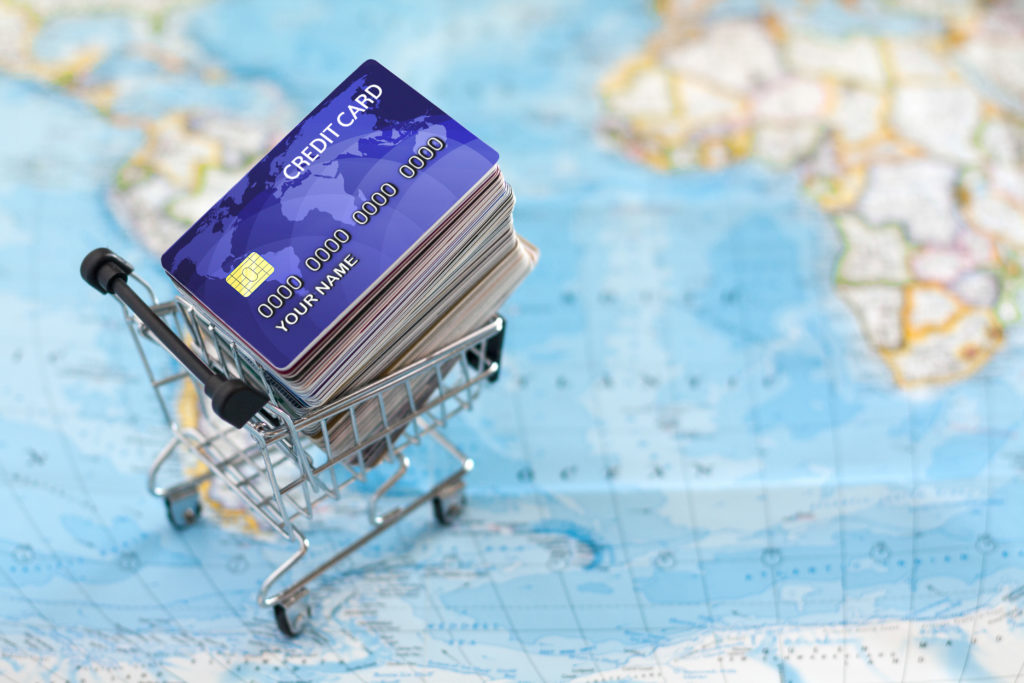Can you really get free travel?
It sounds like a scam, but many travelers manage to vacation for pennies on the dollar regularly. They might call themselves “travel hackers,” but they’re really just points and miles enthusiasts who are extremely good with credit, credit card rewards, and loyalty programs.
Even though you’ve seen other people do it, you’re probably also wondering if it’s worth it. We all have a friend who has been lured into credit card debt. Or, you may have tried a card only to find it difficult to earn and redeem enough points for a good vacation.
So, how are all these people—these “travel hackers” who post pictures of themselves in first class—doing it? And more importantly, can you do it, too?
If you want to know more about how it works and how you can start, you’ll want to read this.
What is travel hacking?
Travel hacking is a way to get travel for a low cost, sometimes even for free. What most people mean when they say they “travel hack” is they’re redeeming credit card points or frequent flier miles for flights, hotels, car rentals, and other travel costs. People who get good at it are known for booking luxe travel on the cheap.
Zachary Abel, TikTok phenom and travel blogger says travel hacking is about making the system work for you rather than against you. “The biggest misconception is that travel hacking is somehow cheating,” he says, “but it’s just optimizing benefits that many have access to and don’t realize it.”
Travel hacking has a lot of benefits, such as:
- Using points to pay for travel
- Redeeming miles for flights
- Traveling more often
- Staying in nicer hotels
- Learning how to earn status
- Upgrading your flight or hotel room
- Taking family with you at a lower cost
- And countless other benefits
Once you’ve tried it, it’s hard to go back to paying cash.
Learning how to “travel hack” by taking advantage of credit card rewards is easier than ever. There are a bevy of sites with excellent articles and courses to help you learn the ropes.
It starts with a travel rewards card

If you’re open to earning travel rewards with credit cards, the next question you may ask is, “What credit card should I get?” You’ll want to consider a few things before deciding, such as:
- What travel partners pair with the credit card?
- How much are the points worth?
- Is the sign-up bonus lucrative enough?
- Does it have foreign transaction fees?
- Will it be accepted where you spend money?
Surprising things most travel hackers don’t consider dealbreakers include:
- Interest rate
- Annual fee
- Bonus points categories
If you pay off your credit card bill every month, you shouldn’t be paying any interest, so the interest rate isn’t very important to people earning points and miles.
The annual fee is a consideration, but most travel hackers can see the value in paying it to get the benefits of the card. What travel hackers do look at is how high the fee is and whether or not the added benefits of a more expensive annual fee are worth it.
Also, many travel hackers continue to open a handful of cards every year, so the points bonus categories unique to each card may not be as important to a travel hacker.
Related: The Best Family Reward Credit Cards
Cards you can start with
Looking further into the details of the card can help you find one that will work for your travel goals. However, while every major card issuer has a travel rewards card product, there do seem to be some clear winners for the best travel rewards cards.
The Chase Sapphire Preferred card is a popular choice even for experienced travel hackers. There are a large number of desirable travel partners, an easy-to-use travel portal, a lucrative sign-up bonus, and a referral bonus program that can help you earn a ton of points. It’s a great first card to get you started in the hobby.
Currently, the offer for signing up for this card is 80,000 bonus points. To put that in perspective, you could score 16 free hotel nights at a category 1 Hyatt (like the Hyatt Place or Hyatt House). You could also get a free flight to Tahiti with that sign-up bonus.
Another card you’ll want to look at is the American Express Gold. The American Express Gold earns 4X points on supermarket purchases, 4X on dining charges, and 3X on airfare booked directly with the airline. Other cool benefits like the monthly dining credits, Uber credit, and travel perks make this a card worth considering. The sign-up bonus is 60,000 Membership Rewards, which goes far towards redeeming travel.
How do travel hackers earn more points than the rest of us?
Travel hackers don’t wait around for their points to accrue via spending on a credit card. In fact, if you only have one credit card, you’re probably not earning as many points as you want or traveling often as you would like.
Bryce Conway, founder of the popular online travel community 10X Travel, says travel hackers have realized two things:
- It’s really easy to earn a lot of points and miles, most times without even flying.
- If you put in just a little time and effort to learn how they work, you’ll see outsized results from that.
“Travel hackers are able to earn more points than the average person because they are really savvy with credit cards and credit card offers,” he says.
“They’ll often open more credit cards than the average person. The reason behind that being that the bonuses on credit cards are so incredibly lucrative compared to ongoing spend.”
Conway also explained that travel hackers pay close attention to bonus categories to help them earn more points.
“They’re just kind of savvier with points and miles, but a lot of it really comes back to the use of credit cards, opening of new credit cards,” he said, “That is really the secret sauce of travel hacking.”
Related: The Best Travel Rewards Credit Cards with No Foreign Transaction Fees
Travel hackers make the most of redemptions

Learning how to earn points is important, but it is just as important to make the most out of a redemption. Travel hackers are excellent at finding the maximum value in their redemptions, which in turn helps them travel more and upgrade their experiences.
There are two major ways to redeem points for travel:
- Booking travel through your credit card’s travel portal
- By transferring points to a partner program (think Delta, Marriott, etc.)
Snag a Super Low Fare
One of the best ways to maximize value from a travel portal is to book a mistake or sale fare. If you get emails about flight deals, you can usually find these deals in the portal and book them using points. You get the benefit of both points and low fares this way.
Book Any Hotel You Want
You can also use the travel portal to book unique or local hotels that do not belong to the travel partner program of your credit card issuer.
If you want to find a specific bed and breakfast in Ireland, you can book it. If you want to stay in a castle in France, you would book it in the travel portal.
Related: How to Dramatically Slash Your Hotel Costs with These Priceline Tricks
Transfer Points to Credit Card Travel Partners
Many travel hackers swear by the incredible value they get by transferring points to travel partners. Points are often much more valuable when transferred to a partner program.
Abel explained how this works: “Instead of using their points to redeem in the bank’s travel center where they may get 1 to 1.5 cents per point, cardholders can make use of travel partner’s award chart sweet spots to get a multiple of this value.”
“Each partner maintains their own award chart detailing how many miles it requires to get between locations around the world in each cabin of service. You’d be surprised at many of those award rates compared to the cost of the ticket in the bank’s travel center,” he said.
“For instance, if you were pining for a trip to Japan, and wished to fly business class, in non-covid times that would have cost you $3,000 to $5,000. In a bank’s travel center, that may cost you as low as 200k, but could go as high as 500k points. Compare that to transferring to ANA to fly as low as 75k roundtrip in business class from the west coast.”
That’s just one example of how transferring points to a partner program can help you get the most out of a redemption.
“It’s all about finding outsized value within the system,” Abel says.
How to make travel hacking work for you

Travel hacking isn’t for everyone. It’s easy to get burned by credit card debt and pay more in interest each month than you earn in rewards. However, if you have disciplined spending habits, some organization, and a willingness to learn, travel hacking can massively benefit you and your family. Here are a few tips to help make it work for you.
Pay off Your Balance Each Month
When you earn rewards, you’re essentially putting dollars on your credit card to get back pennies. If you’re not paying off your balance and you’re being charged interest, those benefits are moot. (On the flip side, if you do have to carry a balance on a credit card, you might as well be earning rewards for it.)
Stay Organized With Your Points and Credit Cards
Some travel hackers keep a spreadsheet of their credit cards and reward programs. They know exactly when they can apply for a new card to earn the sign-up bonus, when their due dates are, when their points expire, and any other detail they find relevant.
You can also use an app or an online program to do this for you. AwardWallet is an example of a program that can help you track all your loyalty points in one place.
Keep Learning
You never know when you’ll come across a tip that will make your vacation amazing or help you save a ton of money. Keep reading your favorite travel websites and follow social media accounts that will help you learn more about getting the most of travel rewards programs.






